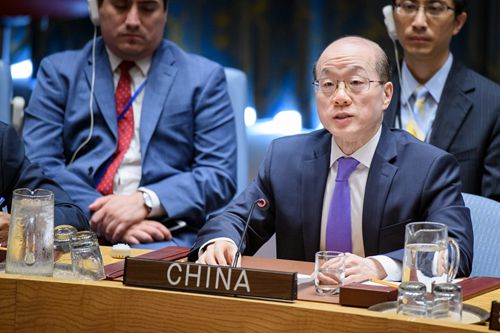| Statement by Ambassador LIU Jieyi at the Security Council Briefing on Enhancing the Effectiveness of United Nations Sanctions |
| 2017-08-03 05:37 |
|
I thank Egypt for having its initiative to convene today’s meeting. I would like to thank Assistant SecretaryGeneral Zerihoun for his briefing. Under the provisions of the Charter of the United Nations, sanctions measures, as one of the peaceful means of conflict resolution, should play a positive role in maintaining international peace and security. Over the years, the Security Council has established multiple sanctions regimes to address relevant conflict situations. Some of those regimes have served their purpose and have been lifted. At the same time, some sanctions regimes have problems and require careful consideration by the Security Council in order to improve them effectively. We must pay particular attention to the following aspects. First, the use of sanctions by the Security Council must be in full keeping with the provisions of the United Nations Charter. There must be prudence and responsibility when employing sanctions. As a matter of priority, the Security Council should use non-coercive means, such as negotiations, mediation and good offices to respond to the threats to international peace and security. The imposition of sanctions should be predicated upon the exhaustion of non-coercive means. Sanctions are peaceful means and should therefore be implemented in a peaceful manner, rather than being imposed through the use of force. Secondly, the Security Council’s decision to impose sanctions must be part of an overall political settlement package. Sanctions are not the end in themselves. Sanctions alone cannot resolve issues. The fundamental way out is through the use of political and diplomatic means, such as dialogue and negotiation. In quite a few cases, the weak link in the solution lies not with the level of sanctions implementation, but rather with the lack of progress in the political track. The Security Council’s decision on the overall political package should be advanced holistically. The implementation of Security Council resolutions should not be selective. The use of sanctions measures by the Security Council should serve the overall purpose of the political process. It should be conducive to the mediation and good offices efforts by the relevant countries, regional organizations and the United Nations, thereby truly helping to ease the situation on the ground and reach solutions. Thirdly, the Security Council should enhance the relevance of sanctions in order to avoid negative consequences. The Council should determinedly focus on the key aspects of issues at hand and be prudent when considering the measures and scope of sanctions. Sanctions should serve the purpose of conflict resolution. To the greatest extent possible, sanctions measures should have a low negative impact on the general population and third countries. In addition, sanctions measures should not affect the normal legal trade and economic relations of the sanctioned countries nor people’s livelihoods and the humanitarian situation in the countries concerned. As the situation on the ground and the resolution process evolve, the Security Council should conduct timely evaluations and assessments of the sanctions measures and, as needed, adjust, suspend and, ultimately, terminate them. Imposing sanctions is a very important decision. It should be done properly and strictly in line with relevant resolutions of the Security Council so as to avoid any attempt outside the framework of the Security Council to impose unilateral sanctions or willfully expand their scope. As a permanent member of the Security Council, China will continue to maintain its prudent and responsible approach in addressing the issue of sanctions so as to ensure that the sanctions measures decided by the Security Council will serve the ultimate purpose of the political solution and be subject to it, in order for it to play its part in maintaining international peace and security in a constructive and positive manner. |
| |||||||||||||
| |||||||||||||
